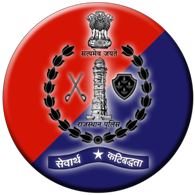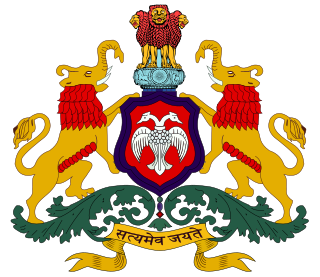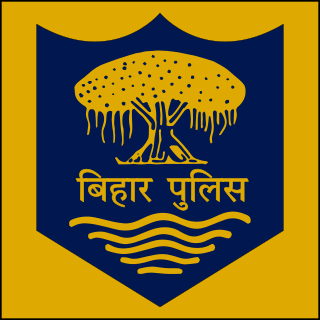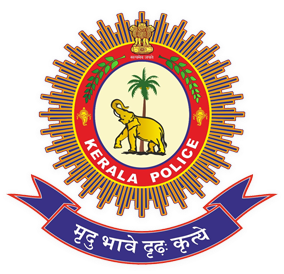
The Indian Police Service is a civil service under the All India Services. It replaced the Indian Imperial Police in 1948, a year after India became independent from British Raj.

Law enforcement in India is imperative to keep justice and order in the nation. Indian law is enforced by a number of agencies. Unlike many federal nations, the constitution of India delegates the maintenance of law and order primarily to the states and territories.
An inspector general is an investigative official in a civil or military organization. The plural of the term is "inspectors general".
Police commissioner is a senior rank in many police forces of the world. In other jurisdictions, it is the title of a member of an oversight board.

The Punjab Police is the police agency responsible for law enforcement and investigations within the state of Punjab, India. Punjab Police has a broad array of specialized services, including the prevention and detection of crime, maintenance of law and order and the enforcement of the Constitution of India. Its headquarters are located at Jan Marg, Chandigarh. On 7 September 2011, Punjab Police started a video conferencing service to redress problems of NRIs. The present DGP of Punjab Police is Gaurav Yadav IPS. He is an IPS officer of 1992 batch.

Director General of Police (DGP) is a rank in the Indian Police Service, held by the highest ranking police officer in a State or a Union Territory of India, typically heading the state or the UT police force. The DGP is appointed by the cabinet and holds a three-star rank.
The All India Services (AIS) comprises three civil services in India common to the centre and state governments, which includes the Indian Administrative Service (IAS), the Indian Police Service (IPS), and the Indian Forest Service (IFS). Civil servants recruited through All India Services by the central government are assigned to different state government cadres. Some civil servants may, later in their career, also serve the centre on deputation. Officers of these three services comply to the All India Services Rules relating to pay, conduct, leave, various allowances etc.

Tamil Nadu Police is the primary law enforcement agency of the state of Tamil Nadu, India. It is over 150 years old and is the fifth largest state police force in India. Tamil Nadu has a police-population ratio of 1:632. The Director General of the Tamil Nadu police is Shankar Jiwal.

The Rajasthan Police is the law enforcement agency for the state of Rajasthan in India. The Rajasthan Police has its headquarters in the Jaipur, the state capital. The motto of the force is "committed to serve".

Kochi City Police (KCP), officially the Kochi City Police , is the police force of the Indian city of Kochi. The force is headed by a Police Commissioner, an IPS officer. The city police was reorganized as Metro Police force, on 1 April 1966, after forming City Corporation of Cochin. Kochi City Police is one of the most advanced police force, considering the strategic importance of the city.
The Superintendent of Police (SP) is a rank in Indian police forces held by an officer who serves as the head of a police district primarily in rural areas. Other officers in SP rank may be appointed as the head of specialised wings, units or similar posts. In the commissionerate system in cities, an SP may be appointed as the Deputy Commissioner of Police (DCP) under the Commissioner of Police. Since the district magistrate is the administrative head of a district encompassing the police district, the SP reports directly to the district magistrate, who has general control and direction over police administration in the district. In the organisation, SP sends monthly reports to the Director General of Police (DGP) through the Inspector General of Police (IGP) and the Deputy Inspector General of Police (DIG).

The Ministry of Home Affairs, or simply the Home Ministry, is a ministry of the Government of India. It is mainly responsible for the maintenance of internal security and domestic policy. It is headed by Minister of Home Affairs.

The Karnataka State Police is the law enforcement agency for the Indian state of Karnataka. It was established in 1965 and is headquartered in Bengaluru, the capital city of Karnataka. The KSP is a state police force that works under the purview of the Department of Home Affairs, Government of Karnataka. The department is headed by the Director General and Inspector General of Police.

Gazetted officers include all the Indian Police Service officers which are Class I officers of the cadre and all State Police Services officers of and above the rank of Deputy Superintendent of Police. All are arranged in a hierarchical order.

Sashastra Seema Bal is a border guarding force of India deployed along its borders with Nepal and Bhutan. It is one of the seven Central Armed Police Forces under the administrative control of the Ministry of Home Affairs (MHA).

The Bihar Police is the law enforcement agency for the state of Bihar, India, with its headquarters in Patna. It has a sanctioned strength of 111,000 personnel, and as of 2017, employs 77,000 personnel.
A Crime Investigation Department (CID) or Crime Branch is a branch of the state police departments of India responsible for the investigation of crime, based on the Criminal Investigation Departments of British police forces. It's the specialised investigation wing of the state police, and headed by an officer of the rank of Director General of Police or Additional Director General of Police (ADGP).

The Kerala Police is the law enforcement agency for the Indian state of Kerala. Kerala Police has its headquarters in Thiruvananthapuram, the state capital. The motto of the force is "Mridhu Bhave Dhrida Kruthye" which means "Soft in Temperament, Firm in Action" in Sanskrit. It operates under the Department of Home Affairs, Government of Kerala. The force is headed by the State Police Chief, and the incumbent chief is Shaikh Darvesh Sahib, IPS.
Provincial Police Service, often abbreviated to as PPS, is the state civil service for policing of Uttar Pradesh Police comprising Group A and Group B posts. It is also the feeder service for Indian Police Service in the state.
In India, the police forces of the states and union territories are responsible for law enforcement in the states and union territories. Police and Public Order are State subjects under the Seventh Schedule to the Constitution of India.














